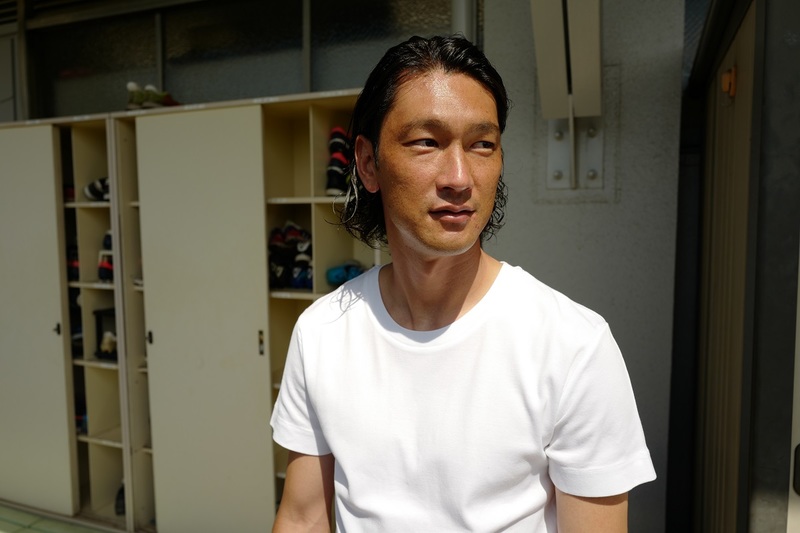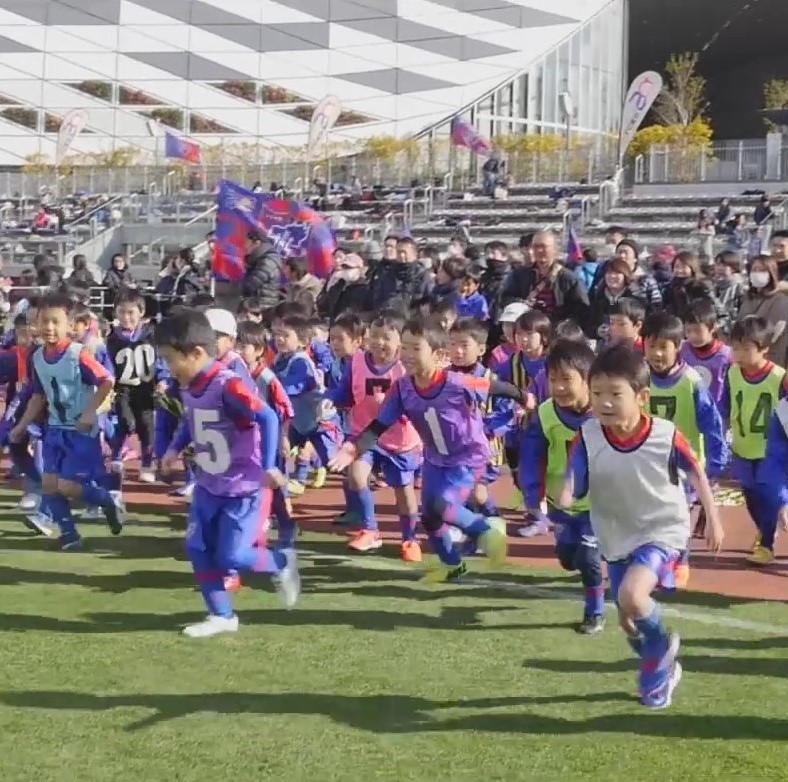"I love you so much, it's hopeless"
My senior reporter described Yojiro TAKAHAGI's play in that way.
Even with such a fickle personality, their play never fails to captivate people.
Why? It might be because his way of life itself is embodied in his play.
An endless chase with no correct answer.
Enjoyed it more than anyone else.
Falling in love with soccer at some point, making someone fall in love.
Yojiro TAKAHAGI is right in the middle of that loop, now and in the future.
Thinking for Someone Else
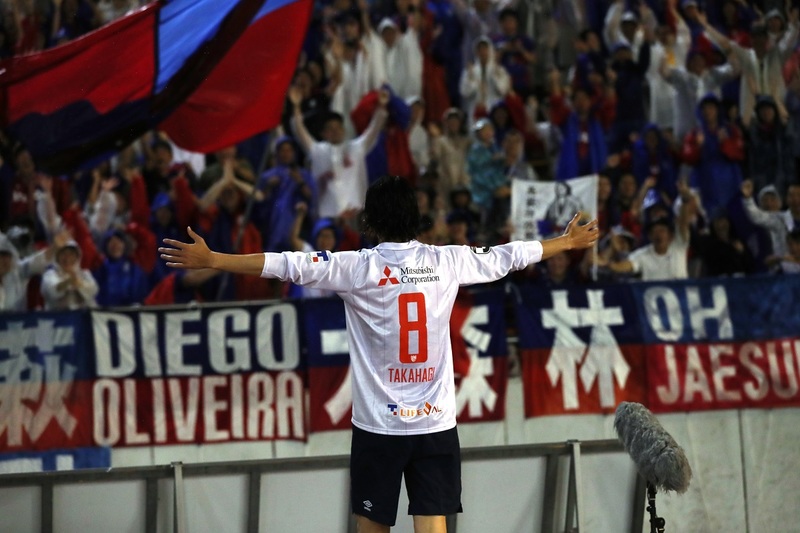
"Do not ask for whom the funeral bell tolls
The funeral bell tolls for you"
This poem, beginning with the line "No man is an island," by the English poet John Donne, is used as an epigraph in Ernest Hemingway's novel "For Whom the Bell Tolls."
On March 11, 2011, the Japanese archipelago was struck by the Great East Japan Earthquake. It caused extensive damage to the Tohoku region, and the tsunami triggered by this disaster hit his family home in Iwaki City, Fukushima Prefecture. His parents were safe, but his beloved grandmother remains missing to this day.
Immediately after the earthquake disaster, I wondered, "Is it okay to continue playing soccer like this?" Even so, encouraged by my family and friends who said, "We want you to inspire us through soccer," something changed.
In the following 2012 season, he recorded 4 goals and 12 assists, and the team accumulated victories and points. On November 24, when Hiroshima secured their first-ever annual championship, there was Takahagi alone on the pitch of the Hiroshima Big Arch, clasping his hands together in prayer amidst the jubilant celebrations.
"After the earthquake disaster, I was unable to play soccer, and many things happened to my family. For the first time, I wanted to play for someone else. Once I felt that way, I couldn't do things carelessly. Until then, I only cared about myself. I was particular about my own play and style. After the disaster, I started thinking about achieving good results for my family and delivering good news for Fukushima, and I began to express that in words as well. I believe that from there, I gradually started to change myself."
In a football career that has continuously evolved, I have gained an unchanging resolve. We live in an era where we spend more time looking at devices than making eye contact with each other. Even so, I have come to think of others, sometimes visiting places to meet face to face, and expressing my feelings in various settings. Along with these changes in mindset, I have grown significantly as a football player. In the 2012 season, I was awarded my first J1 Best Eleven, and the following year, I became the first player from Fukushima Prefecture to join the Japan national team.
Expanding Perspectives Through Overseas Challenges
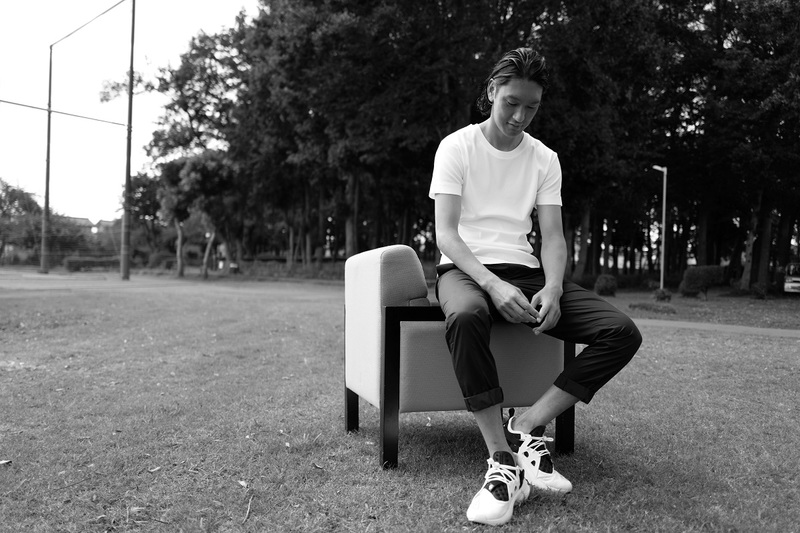
In January 2015, Takahagi decided to transfer overseas. He made a permanent move to the Western Sydney Wanderers in the Australian A-League, and six months later sought opportunities to play for FC Seoul in the Korean K League.
"Various timings coincided. I made the decision considering Hiroshima's team situation and contract details. I was with the team for a long time and felt extremely comfortable. I didn't think about it at the time, but if I had stayed any longer, I would have ended up as just that level of player. I originally wanted to go abroad, and I also felt a bit of stagnation, so I thought it might be better to change my environment. Besides, I knew that every time I changed my environment, I was able to grow."
Starting over in a completely unfamiliar place where the language is not understood. There were new discoveries there. Thinking "for someone else" was helpful here as well.
"(Australia) has a different feel from the soccer I've played so far. The playing style and rhythm vary depending on the country's league. I think I was able to absorb things that don't exist in the J-League. My experience in Korea was also significant. Changing environments made me realize that just playing the way I like or am good at is not enough. To adapt to the environment, you have to align with the common sense there. My way of thinking changed, including the earthquake and transfers. Realizing that I have to take responsibility for the team was a big deal."
Takagi, who had been an offensive player until then, dropped one position in South Korea. Utilizing his wide field of vision as a defensive midfielder, he became an indispensable presence for the team with his dedicated defense. In his first year with FC Seoul, he was a driving force behind winning the Korean FA Cup, and in the following season, he contributed to the league championship as an unshakable playmaker.
From the 17th season, he chose a full transfer to Tokyo as the place for his return to Japan. It was to savor that feeling for the fourth time. Through the soccer he has devoted himself to, he experienced the greatest moments. He still vividly remembers the moment of his first championship victory in Hiroshima.
"I thought, 'I can't believe I'm this excited as an adult.' I was just so happy. I don't think there will be anything else this joyful after becoming an adult."
It was because I "felt the potential" to experience that in a new place called Tokyo. However, things did not go as planned. That year, together with Takahagi, we acquired players of Japan national team caliber one after another, but in the end, we struggled and finished in 13th place.
Occasional Rewards
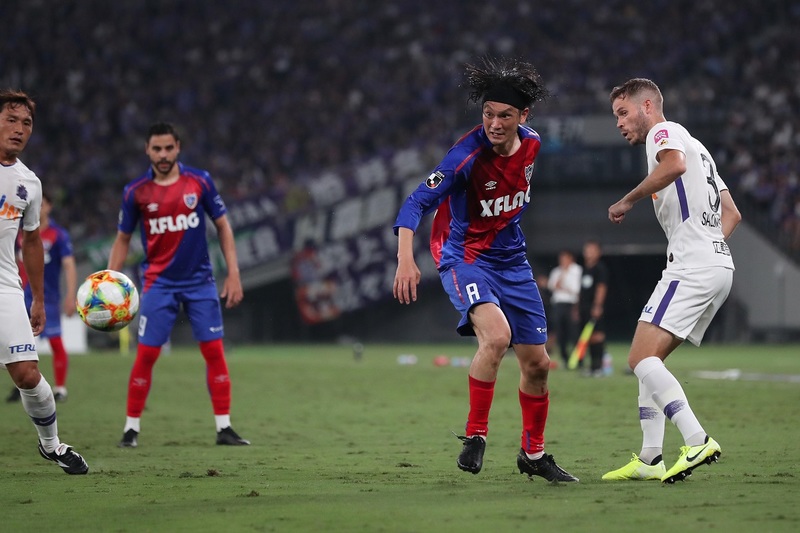
When asked about the difference from this season, where they are competing for the championship, he said, "Now we have confidence in the team's approach and way of fighting," and paused for a moment. Then, with determination, he continued.
"Players have stopped complaining without thinking about the team. No matter the manager, no matter the coach, no matter the style. I think it means 'just be quiet and do your job first.' When I transferred here, I thought, '(The players) are saying whatever they want.' I have also experienced relegation to J2 with Hiroshima. At that time, I was young and not playing in matches, and I wondered why I couldn't get playing time and thought on my own that if I were used, I could do this or that. Looking back now, the atmosphere when I came to Tokyo three years ago and when we were relegated to J2 was similar. Strong teams stay consistently in certain positions in the standings. Hiroshima, when they won the championship, had come up from J2 and stayed around a certain level without big fluctuations. If we become that kind of team and keep staying there, I believe we can win the championship during good runs. Being within the AFC Champions League (ACL) zone every year brings us closer to winning the title."
As a player with extensive championship experience, I asked a straightforward question, "Does Tokyo seem likely to win the championship?" Then, I received a typical response.
"It's hard to put into words. Even if you say big things, reality is different. You just have to want to win the championship. It's not about whether you can or cannot do it. I believe the feeling of wanting to win is more important. People say I have experience winning the championship, but that doesn't matter."
When asked about the reason, it was still "for someone else."
"You can't win the championship by thinking like that while playing soccer. Just because you have championship experience doesn't mean you can lead the team to victory alone. My words alone don't change the team during the match. Sometimes we lose, sometimes we win. Don't we win more often when I'm not standing out? You can't rely on others. I rely on others for things I can't do myself (laughs). But I do everything I can. You can't do more than what you're capable of. (Because it's a team) I ask for what can be done. If I can help with what I can do, I do it for the team. I'm not the type to stand out, and nothing good comes from me standing out. As long as I'm playing in matches, I'm expected to score. But I do what I can in other areas, and scoring is like a bonus, a treat from Glico. Sometimes you get a lucky prize, right? (laughs)"
Not “wa” but “ni”
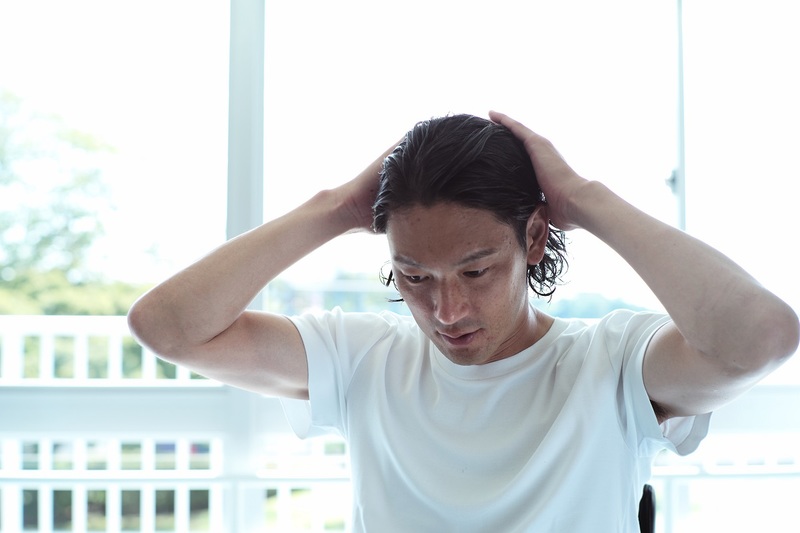
In September this year, as part of reconstruction support activities, I visited Tomioka Town in Futaba District, Fukushima Prefecture with my teammates from Tokyo. We interacted with the children and inspected the current situation of the area together with the players. Before the earthquake, the population was about 15,000, but now it is around 1,000. Barricades still surround the restricted return zone.
"It was after that earthquake disaster that I started thinking about doing something for someone else. From that day, I felt I had to take responsibility for my words. So, I don't want to say something careless like we will definitely win. With each victory in front of us, I want to show the effort for someone else, for the families affected by the disaster, and for the people of Fukushima."
In Tokyo, he wore the number 8 jersey. Defeating that feels like a Möbius strip. The endless chase continues even now.
"ACL? I want to go there. It probably won't be easy, and it might not go well. But that will be a valuable experience. Moreover, I think it will also benefit the league matches. I'm really looking forward to it."
Even at 33 years old this year, his passion for soccer has not changed at all. When you see photos of him playing, everyone will surely be surprised. Off the pitch, he is so smart, but in every photo, he is chasing the ball with an intense expression. Even now, he is always giving his all.
If there is anything that has changed, it is that the space in his heart, which he had kept open "for his own soccer," has now been filled with feelings "for someone else." "I don't want to waste anything," he says. However, he surely does not want to "waste" the efforts of players who share the same feelings "for the team, for someone else." The image captured in the photo tells this story more than anything else.
For whom the bell tolls, ask not――. Yojiro TAKAHAGI always rings the bell for someone, with a prayer.
◇FC Tokyo Players' Association Reconstruction Support Activities are here
【INSIDE F.C.TOKYO】FC Tokyo Players' Association Reconstruction Support Activities ~Stay Strong Fukushima! Tomioka Won't Give Up!~
◇Yojiro TAKAHAGI Profile
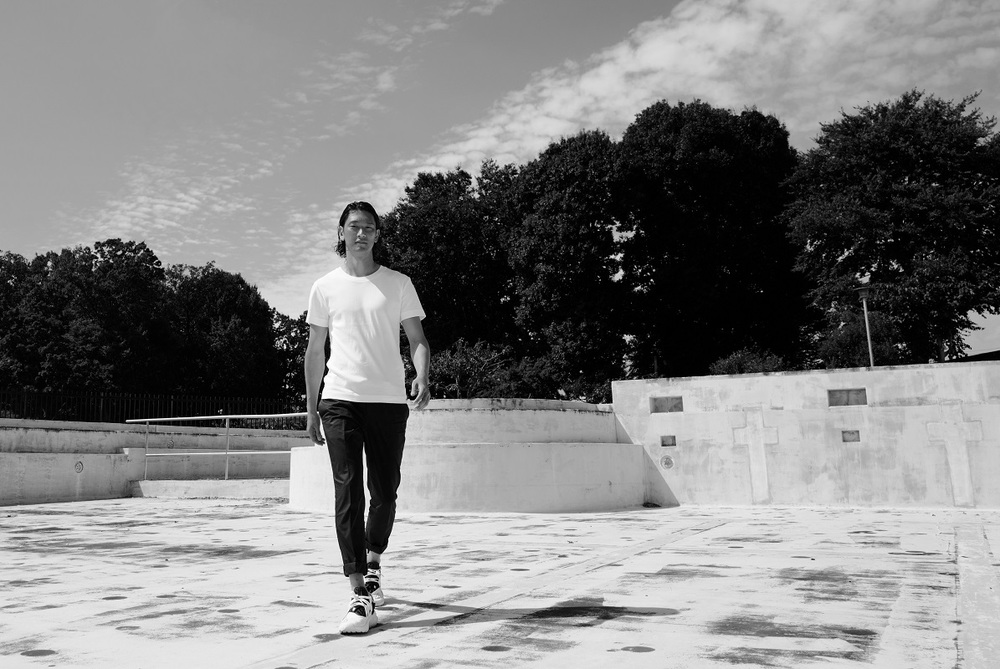
text by Kohei Baba
photo by Kenichi Arai, Masahito Sasaki




